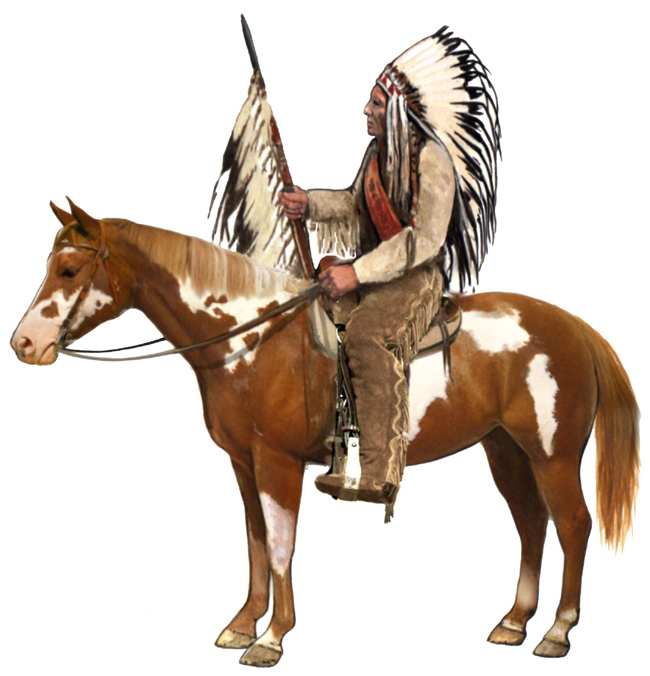|
|
| Pinto Horse |
 |
Though commonly associated with the Native American for its
legendary magical qualities in battle, the Pinto horse was actually
introduced to North America by European explorers, chiefly those
from Spain, bringing their Barb stock that had been crossed with
native European stock years before. It is believed that the Pinto
patterns may have arrived in Europe via the Arabian strains, as
Pinto markings appear in ancient art throughout the Middle East.
However, evidence of the more dominant Tobiano pattern among the
wild horses of the Russian Steppes suggests the introduction of
Pinto coloring to Europe possibly as early as during the Roman
Empire.
After the arrival of these European horses, great wild herds
infused with the flashy color patterns we know today began to
develop across America, eventually to be domesticated by the Native
American. The white man continued to import many of the
well-established and stylish European breeds as his foundation
stock. Over time, however, with the civilization of the Native
American and the white man's migration to the frontier, it often
became necessary to cross these fancy, but less suitable breeds of
the Eastern seaboard with the wild mustang stock to increase size
and attractiveness as well as availability of a horse better suited
to the strenuous working conditions of the day. This Western-bred
horse became a fixture of America, especially the uniquely marked
Pinto whose colorful presence in parades and films always added a
little extra glamour.
One of the most
frequently asked question regarding the Pinto is "what is the
difference between Pintos and Paints?" Simply put: The Paint Horse
(registered by the American Paint Horse Association) is limited to
horses of documented and registered Paint, Quarter Horse, or
Thoroughbred breeding. The difference in eligibility between the two
registries has little to do with color or pattern; only bloodlines.
While most Paints can be double registered as Stock or Hunter type
Pintos, the Pinto Horse Association (PtHA) also allows for the
registration of miniature horses, ponies, and horses derived from
other breed crosses, such as Arabian, Morgan, Saddlebred, and
the Tennessee Walking Horse. |
Image
copyright Feenixx Publishing.
All right reserved. May not be used without prior written consent. |
|